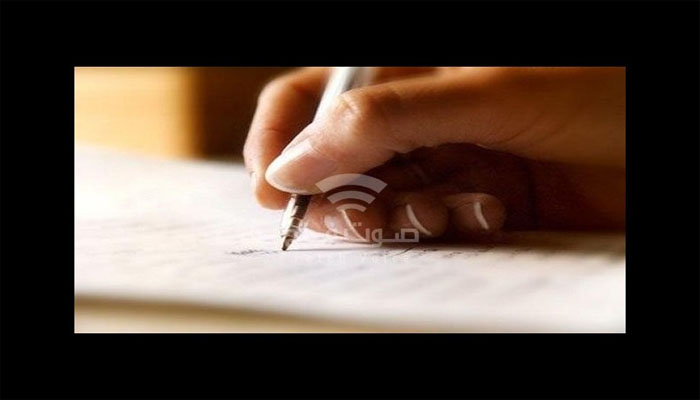
Afrasianet - Sadiq Al Shafei - The topic of the article I intended to write was on "Earth Day" and its connection with springtime and its aesthetics, Women's Day, Mother's Day, and the memory of the Battle of Dignity.
All of them are titles that share impressive aesthetics and supreme national human values, all of which evoke pride and pride and are full of hope, optimism and enthusiasm.
But the news on Wednesday evening, after submitting all the electoral lists to the Central Elections Committee, in particular: the official list in the name of the Movement's Central Committee (Al-Asifah), and the coalition list between Marwan Barghouti and Nasser Al-Kidwa, in addition to the announcement that the number of lists submitted to the Central Elections Committee reached 36.
This news necessitated a change in the topic of the article towards questions that are accompanied by anxiety and apprehension. This is not the first time that Fatah has faced attempts to deviate from obedience and the unity of the movement, and for various reasons and motives.
But all attempts were limited and immediate, and some were encouraged and supported by outside forces. This is what made the Fatah movement able to coexist with those attempts to contain them, and they actually succeeded in doing so.
It helped a lot in those days, the cohesion of the first leadership bodies of Fatah and the breadth, flexibility and farsightedness of Fatah. Moreover, at that time, there was no authority, sites, centers of influence, privileges, degrees, incentives, ... and ...Now the situation is different.
There has been, for some time, a kind of labor within Fatah that includes most of the movement and its frameworks and bodies calling for change and preparing for it.
The presence of electoral lists bearing the name of "Fatah", in addition to what is said about the descent of numbers of its cadres on other independent electoral lists, weakens the chances of official "Fatah" to win the elections and their results in them, and weakens its role in shaping the Palestinian political reality:
leadership bodies, programs, policies and positions . As for the possibility of grouping "Fatah" among its affiliates who succeeded in the elections in a single bloc, it remains a weak possibility. The conditions of "Fatah" alone are not a cause for concern and fear regarding the legislative elections.
The mere presentation of 36 electoral lists strongly indicates a state of dispersion in society, and a severe weakness in the representation of the existing political organizations and in their public presence. -
Then there is the position on the elections in Jerusalem: Will it be possible to hold them naturally and completely in the city, or will the occupation state, in a timely manner, prevent it under the pretext and logic of its absolute and individual sovereignty over the entire Holy City, and will the international community allow it to do so or remain silent about it? After the day that all the Palestinian forces, in public speeches and in front of a mass gathering in the city of Jerusalem on March 29, agreed that “there are no legislative elections without Jerusalem,” the Hamas leader, Abu Marzouq, went out the next day immediately in his tweet on “Twitter” saying : "We refuse to postpone the elections under any pretext ... nor to exclude Jerusalemites from voting.
" If the occupation state resolves its order to prevent elections from taking place in Jerusalem, will this be an entry point for a Palestinian dispute over holding elections throughout the country, the first of which is Jerusalem?
Or an introduction to a general Palestinian national agreement on how and methods of dealing with the Israeli decision and confronting it, or circumventing it? The individual and one-sided decisions of any official or organization are what cause concern and fear.
Central and general issues should not be dealt with except by a general national decision after scrutiny and serious and responsible collective discussion. Abu Marzouq’s statement, if it is true and accurate, and expresses Hamas’s movement, then it opens the door to observations and questions about Hamas’s positions towards the legislative elections and their connection to the most important issue, which is the restoration of Palestinian national unity in the community, program, institutions, leadership, policies and positions. The first question is its acceptance of holding elections before discussing the divided Palestinian situation and agreeing on how to get out of it.
Then a question was asked about her acceptance of the start of the dialogue about the elections before and without agreement on the political basis on which to take place. This means the continuation of the political approach based on his condition, the Oslo approach, security, economic and other agreements, and the negotiations and their projects that do not see the light and do not hinder the occupying enemy's policies of settlement, annexation and annexation.
This is the approach that "Hamas" established and established its patriotic and militant presence on the basis of its rejection and the call to leave it. Is behind the answer to such questions a decisive Hamas decision to prioritize going to the elections, based on its reading of the Palestinian reality that the results of the elections will generally be in its favor, and that this is what will enable it to impose its visions and policies, in addition to imposing its legitimacy regionally and internationally.
And the most important thing remains: that the elections take place and take place in the highest degree of smoothness, freedom, integrity and safety .... and that they take place in all cities and villages of the West Bank and Gaza Strip ... and in the first place and the heart of it in the city of Jerusalem and its neighborhoods ...... And to open the way for the representation and role of the rest of the Palestinians in all their whereabouts.

